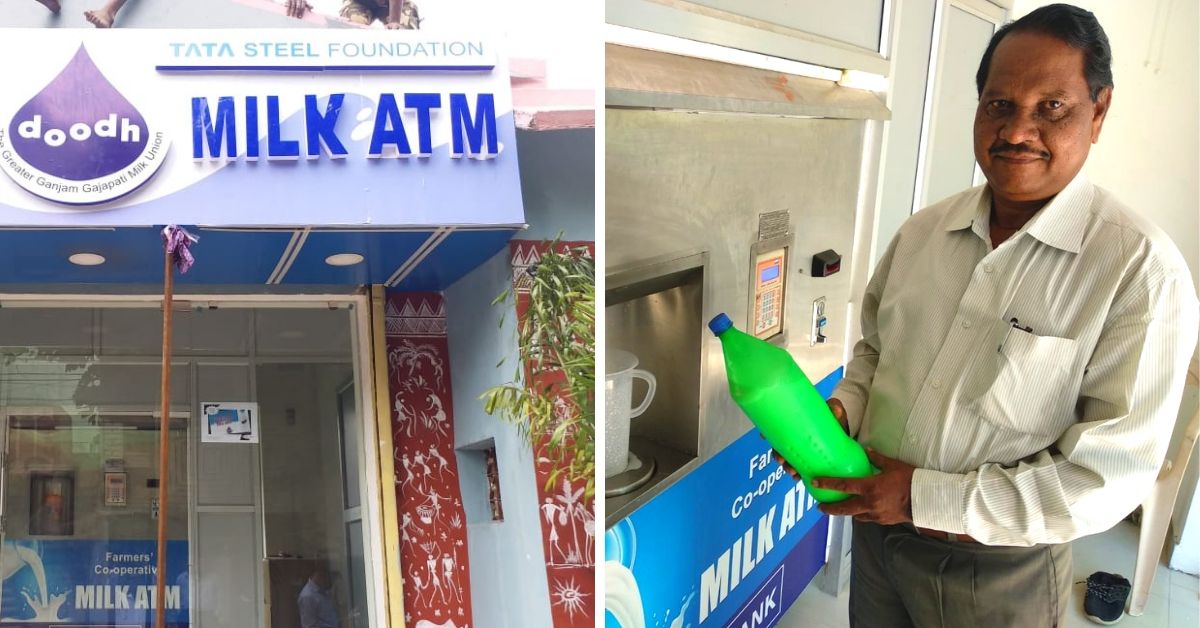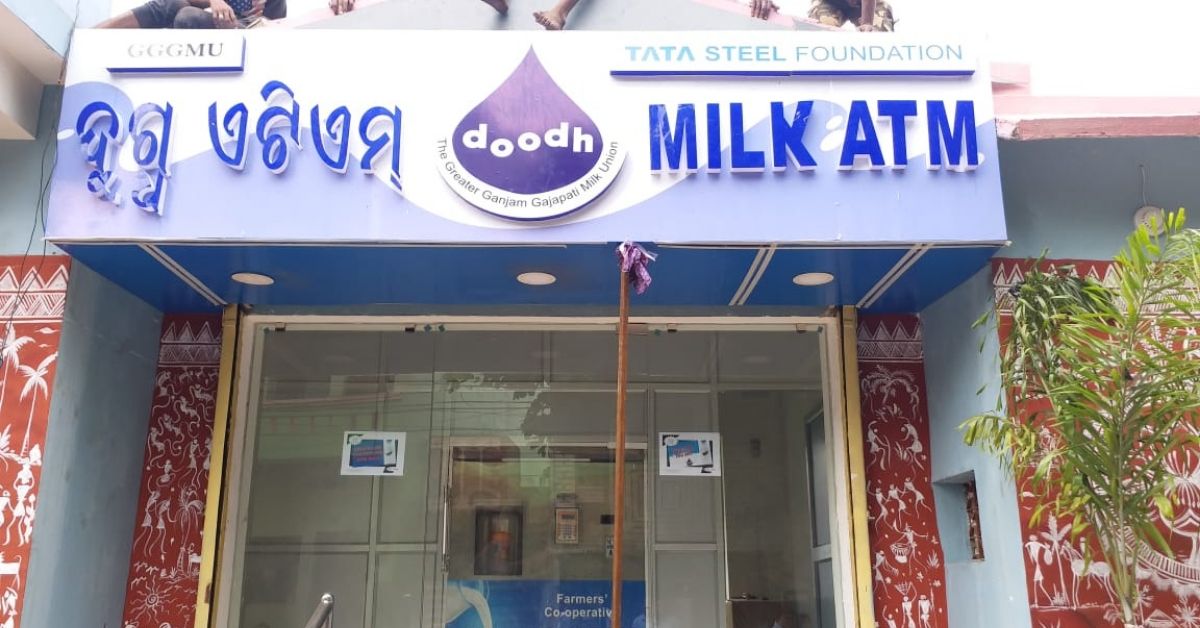Intending to do away with plastic pouch menace, companies and state governments are coming up with Milk ATMs where a user can put in money and procure milk in their containers, thus eliminating the need for a pouch.
And Ganjam district in Odisha is the latest region to install a milk vending machine to discourage the purchase of plastic milk pouches. District Collector Amruta Kulange led the project in collaboration with the Greater Ganjam Gajapati Co-operative Milk Producers’ Union and Tata Steel Ltd.
Looking for a daily dose of protein? Then this camel milk powder can help you. Check out pure and fresh camel milk sourced from the camels of Kumbhalgarh here.
It was during the implementation of the plastic ban in the district when experts and people raised concerns about plastic milk pouches.
Our administration was spreading awareness about the harmful effects of one-time disposable plastic items when people questioned the use of milk pouches. After some research, we decided to install milk ATMs to reduce plastic pouch waste generation, Kulange tells The Better India (TBI).

The administration tied with up 7,200 dairy farmers through the milk cooperative to supply milk in the ATM which has a carrying capacity of 500 litres. Customers can buy one litre of milk at Rs 40, and the minimum amount that can be procured is 250 ml Rs 10.
The Rs 6 lakh milk ATM, financed by Tata group through their CSR funds, was started a little over a month ago near Gate Bazar in Berhampur, Odisha. On average, the ATM dispenses 250 litres of pasteurised milk daily. The users consist of students, wage labourers and households.
Wanting to tackle the issue of plastic milk pouches and bottles, Maharashtra became the first and only state in the country to introduce a buyback policy for milk pouches and PET bottles where a customer will be charged extra 50 paise for a milk pouch and Re 1 for a plastic bottle. This money gets refunded once the pouch is returned to the retailer you bought it from. Read more here.
State governments in India need to scale up their recycling game as plastic is ubiquitous, and despite recycling systems in place, not all plastic gets recycled.
Welcoming the move, Girish Prajapati, a daily-wage labourer, said that the ATM helps with his hunger pangs, “I usually work at odd hours, either early morning or late in the night when the shops are shut. The best part is that I do not have to buy the entire milk pouch. Two hundred fifty ml for Rs 10 at any time of the day is a great deal for me.”
The district administration will soon open another milk ATM in MKCG Medical College and Hospital for the patients and visitors. Other ATMs will be installed in public places that the administration is currently identifying.
“It is a feasible solution and a win-win situation for all. Plastic pouches are avoided, and quality milk is provided at standardised rates. It is getting a positive response from the people,” Kulange adds.
Also Read: This Farmer First Built His Own Milk ATM. Then He Helped it Go Cashless!
Image Credits: Amruta Kulange
(Edited by Saiqua Sultan)
Like this story? Or have something to share?
Write to us: contact@thebetterindia.com
Connect with us on Facebook and Twitter.
If you found our stories insightful, informative, or even just enjoyable, we invite you to consider making a voluntary payment to support the work we do at The Better India. Your contribution helps us continue producing quality content that educates, inspires, and drives positive change.
Choose one of the payment options below for your contribution-
By paying for the stories you value, you directly contribute to sustaining our efforts focused on making a difference in the world. Together, let's ensure that impactful stories continue to be told and shared, enriching lives and communities alike.
Thank you for your support. Here are some frequently asked questions you might find helpful to know why you are contributing?

